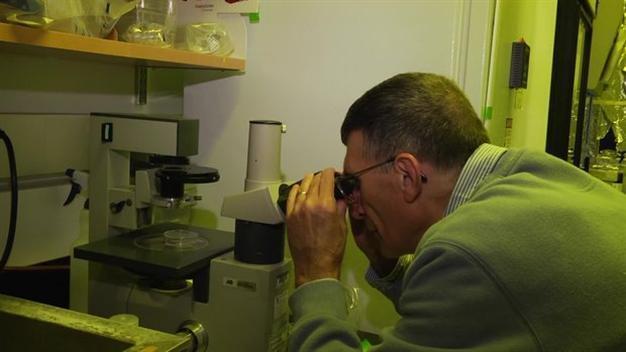Turkey should put more weight into science: Nobel laureate
Nafiz Albayrak – CHAPEL HILL, NC – Doğan News Agency

DHA photo
Aziz Sancar, Turkey’s 2015 Nobel laureate in chemistry, emphasized the necessity of science education at early ages, specifically asking peoples living in the country’s east and southeast to send their young girls to school.“From Mardin to Kars and Edirne, our children should all be offered education and training in science and related fields – particularly our young girls. If we do not educate our girls, we would lose half of our labor force as well. I repeatedly ask our brothers and sisters in the east and southeast of Turkey to send their young girls to school,” said Sancar, a DNA scientist and academic at the University of North Carolina.
Young girls are often removed from school by their parents, particularly in eastern and southeastern Turkey.
Sancar, a U.S. citizen of Turkish origin, said Turkey should put the necessary weight behind science, while adding that the medicine education he received from Istanbul University Medical School had contributed much to his academic efforts that won him the Nobel Prize on Oct. 7.
Making remarks on the latest developments in the country, Sancar said he was troubled by the ongoing violence in the country, adding that the ultimate solution would be to work on critical issues such as developing the country by solving problems in education, health and the distribution of income.
“[I] hope Turkey will come through this process and find a discreet solution,” Sancar said.
“[If we do], we could work on more important issues. The key question is to develop, improve the home country and solve issues regarding education, health and the distribution of income. Only then will we be able to reach a position to compete with European countries,” he added.
Sancar is among the three names to have won this year’s Nobel Prize in chemistry, the award-giving body announced on Oct. 7.
Sancar, along with Sweden’s Tomas Lindahl and the United States’ Paul Modrich, won the prize for work on mapping how cells repair damaged DNA.
“Their work has provided fundamental knowledge of how a living cell functions and is, for instance, used for the development of new cancer treatments,” the Royal Swedish Academy of Sciences said in a statement awarding the 8 million Swedish crowns ($969,000) that accompanies the prize.
Sancar was born in Mardin’s Savur district in 1946. The child of “parents who were illiterate but who valued education,” Sancar studied medicine at the Istanbul University in 1963 and moved to the United States after graduation, completing his Ph.D. on the photoreactivating enzyme of E. coli in 1977 in the laboratory of Dr. C. Stan Rupert.
The scientist has been working at the University of North Carolina since 1997 and was elected to the National Academy of Sciences in 2005 and to the Turkish Academy of Sciences in 2006.
Sancar is the second Turkish citizen to win the Nobel after author Orhan Pamuk won the Nobel Prize in literature in 2006.
















